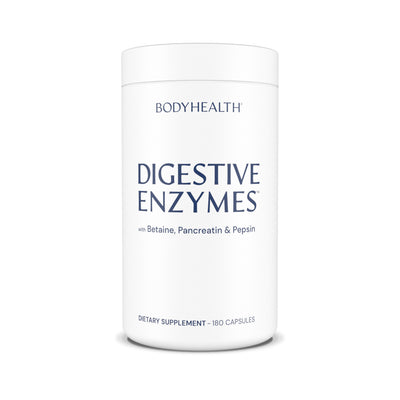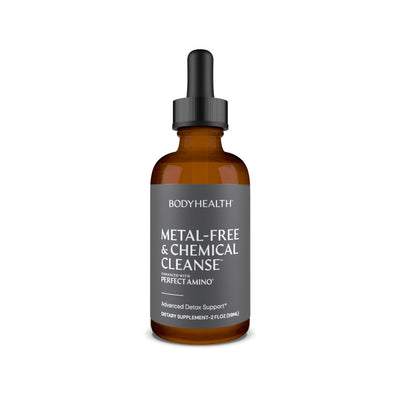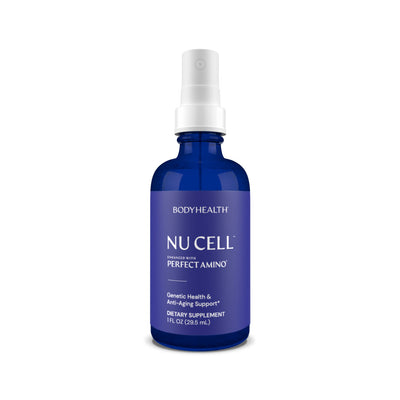Toxic Skin Care: Achieving Soft, Healthy Skin & Reducing Lines And Wrinkles
May 08, 2025 5 min read

Everyone wants soft, healthy, firm skin. Especially as we get older.
This is so much the case that about $17 Billion is spent on skin care products yearly.
But much of these products, while providing results in the short term, actually cause worsening conditions over time, increasing the "need" to use them.
This is due, in many cases, to some very toxic ingredients used in many of them.
These include hormone disruptors, formaldehyde, chemicals also used as plastic softeners, carcinogens, allergens, solvents and even neurotoxins.
And, while free radicals are one of the key things damaging our skin, many of these toxic ingredients themselves cause the formation of free radicals.
So, while these products may contain ingredients that seem to help on an immediate basis, over time many of them are causing the issues they claim to address.
Let’s see what's actually happening here and what we can do about it.
THE TOXINS DESTROYING OUR SKIN OVER TIME
Before we jump into what helps our skin the most, I’d first like to run through the key toxic ingredients in skin care products you should avoid.
Check the ingredients label of any skin care products you have to see if these ingredients are in them. And if they are, I highly recommend you look for a natural alternative:
- Phthalates: Phthalates are used in a large variety of products to increase the flexibility and softness of plastics. Some phthalates are suspected endocrine disruptors.
- Parabens (Methylparaben, Propylparaben, Butylparaben, and Ethylparaben): These are used as preservatives in many skincare products. Parabens can penetrate the skin and act like a weak estrogen in the body, potentially leading to hormonal imbalances and even breast cancer
- Formaldehyde: Formaldehyde and formaldehyde-releasing preservatives (FRPs) are used in many cosmetic products to prevent bacteria growth. This chemical was declared a human carcinogen by The International Agency for Research on Carcinogens (IARC) and it can also cause allergic skin reactions.
- Sodium Lauryl Sulfate (SLS) / Sodium Laureth Sulfate (SLES): These substances can cause skin irritation or trigger allergies.
- Synthetic Fragrances: Synthetic fragrances are among the top five allergens in the world and are known to cause asthma and other serious health issues.
- Toluene: A solvent and neurotoxicant that can impair breathing and cause nausea. Toluene is also linked to immune system toxicity.
- Lead and other heavy metals: Lead, mercury, cadmium, and other heavy metals are sometimes found in skincare products. They can accumulate in the body over time and are linked with a multitude of health issues, including cancer and reproductive harm.
- Polyethylene Glycols (PEGs): These are widely used in cosmetics as thickeners, solvents, softeners, and moisture-carriers. Depending on manufacturing processes, PEGs may be contaminated with measurable amounts of carcinogenic compounds.
- Triclosan and Triclocarban: These are antimicrobial agents that are likely endocrine disruptors and could contribute to antibiotic resistance.
- Hydroquinone: It is most commonly used in skin lighteners and it’s one of the most toxic ingredients used in personal care products.
Yes, believe it or not, these are in some 90% of skin care products today. And while those products may appear to give results in the short term, they’re actually causing many of the problems they claim to address.
WHY IS SKIN CARE SUCH A PROBLEM TODAY
Skin care creams, where they work, operate by laying down a layer of moisture (water, nothing else), and on top of this a layer of oil to hold the water in.
This is how your skin remains soft and moisturized. It has its own layer of oil that keeps moisture trapped to the skin, and it’s when this oil barrier starts to break down that we get dry, rough skin.
But while skin creams contain water and oils to address this, their other toxic ingredients act to disrupt this oil barrier even more.
The real answer is to give our skin what it needs to stay moisturized and soft on its own.
THE INGREDIENTS OF SOFT, HEALTHY SKIN
Saturated fat, found in foods like coconut oil, butter, and fatty cuts of meat has gotten a bad name over the last few decades, and unjustly so.
25% of most cells in our body are made of saturated fats. It’s what holds our cells together. And it plays a crucial role in maintaining soft and supple skin.
Saturated fats act as natural moisturizers for the skin by providing the protective oil barrier that helps prevent excessive water loss and keeps the skin hydrated, leading to smoother, softer skin.
The essential fatty acids in saturated fat also contribute to the elasticity of our skin, helping to maintain its structural integrity and reducing the visibility of lines and wrinkles.
And specific vitamins, such as vitamins A, D, E, and K are fat-soluble, meaning they require fat for optimal absorption by the body.
These vitamins are essential for skin health, as they contribute to cell regeneration, collagen production, and protection against free radicals that destroy skin cells.
Then there is collagen. Collagen is a protein, and it’s the most abundant protein in our bodies, playing a vital role in maintaining the elasticity, firmness, and overall youthfulness of our skin.
But most collagen powders are only about 20% utilized to build new collagen in the body, the rest being converted to energy sources such as sugars or body fat.
To build new collagen we need the essential amino acids in the quantities necessary to repair any damage to our skin cells and keep our skin healthy, soft, firm and elastic.
PerfectAmino is the perfect source of EAAs in a form and ratio that is both fully utilized to build new collagen for softer, firmer skin and five times as effective as collagen powders at building new collagen in the body.
Vitamin C is also essential for collagen synthesis. It acts as a cofactor for enzymes involved in collagen production, ensuring that the amino acids are properly utilized to create healthy collagen fibers.
Omega 3 Fatty Acids are also key. These essential fats are found in fatty fish (such as salmon, mackerel, and sardines), walnuts, flaxseeds, and chia seeds.
Omega-3 Fatty Acids can help reduce skin irritation and redness, contributing to a calmer, clearer complexion.
And, just like saturated fats, omega-3 fatty acids help maintain the skin's natural moisture barrier, supporting the production of natural oils in the skin to keep it hydrated, and preventing dryness and flakiness. This can help reduce the appearance of fine lines and wrinkles.
Lastly, Omega 3 fatty acids promote collagen production and inhibit collagen breakdown, which is essential for maintaining skin elasticity and reducing the signs of aging.
Look for creams and skin care products including these ingredients to get the softest, healthiest, firmest skin, with reduced lines and wrinkles.
And make sure you're taking your PerfectAmino, for maximum collagen production, as well as Omega 3 Health and Multi Complete.
I hope this helps.
REFERENCES:
- Lin, T. K., Zhong, L., & Santiago, J. L. (2017). Anti-inflammatory and Skin Barrier Repair Effects of Topical Application of Some Plant Oils. International journal of molecular sciences, 19(1), 70.
- Katta, R., & Desai, S. P. (2014). Diet and dermatology: the role of dietary intervention in skin disease. Journal of clinical and aesthetic dermatology, 7(7), 46–51.
- Schagen, S. K., Zampeli, V. A., Makrantonaki, E., & Zouboulis, C. C. (2012). Discovering the link between nutrition and skin aging. Dermato-endocrinology, 4(3), 298–307.
- Asserin, J., Lati, E., Shioya, T., & Prawitt, J. (2015). The effect of oral collagen peptide supplementation on skin moisture and the dermal collagen network: evidence from an ex vivo model and randomized, placebo-controlled clinical trials. Journal of cosmetic dermatology, 14(4), 291–301.
- Murad, H., Tabibian, M. A., & Abolghasemi, M. M. (2021). Diet and aging skin: From the molecular perspective. Journal of cellular physiology, 236(4), 2741–2753.
Articles by Health Topic
Your Path To Better Health Starts Here!
From in-depth articles on nutritional benefits to updates on new product launches, stay informed and inspired on your journey to optimal health.
*These statements have not been evaluated by the Food and Drug Administration. These products are not intended to diagnose, treat, cure, or prevent any disease.












